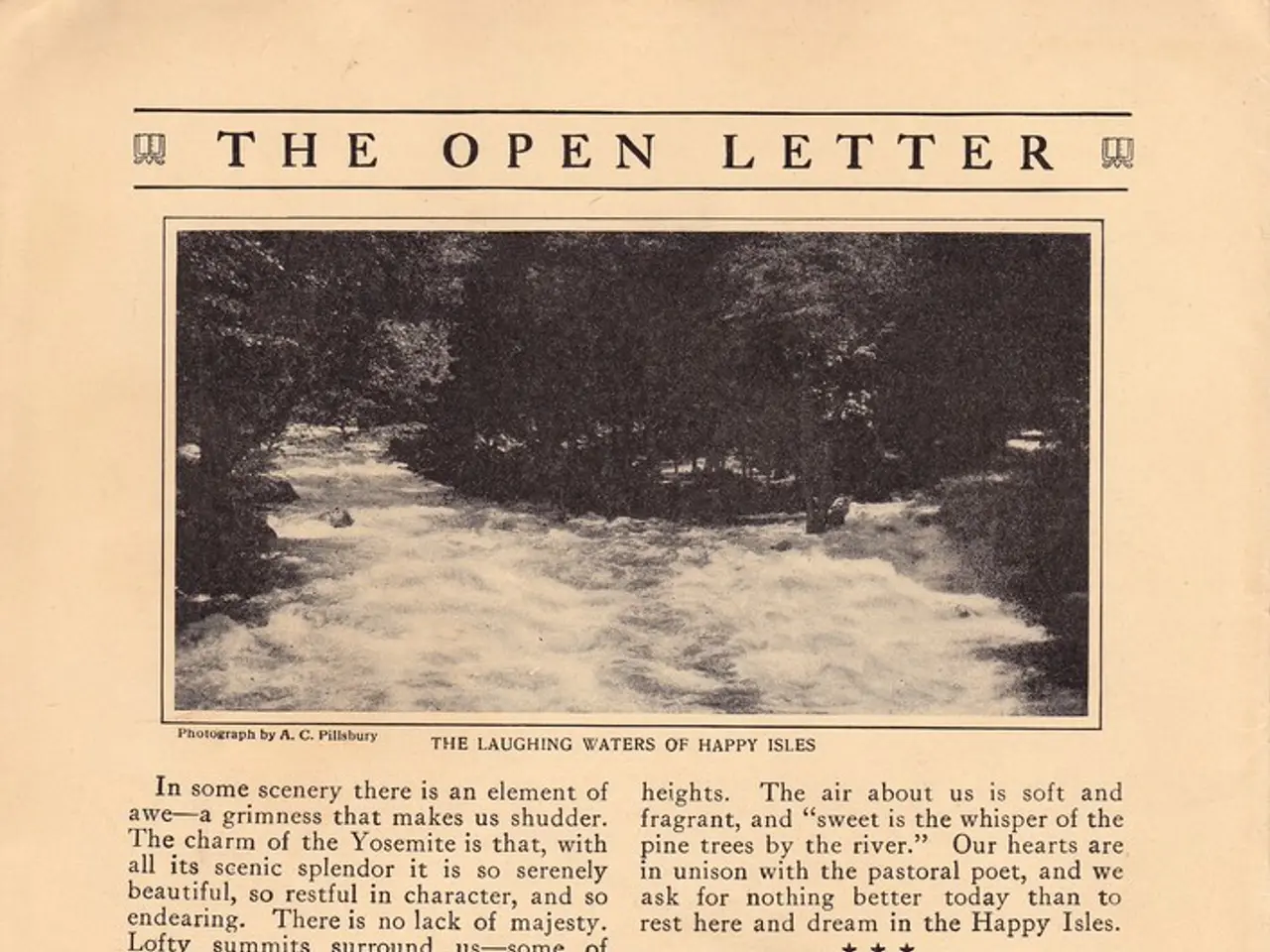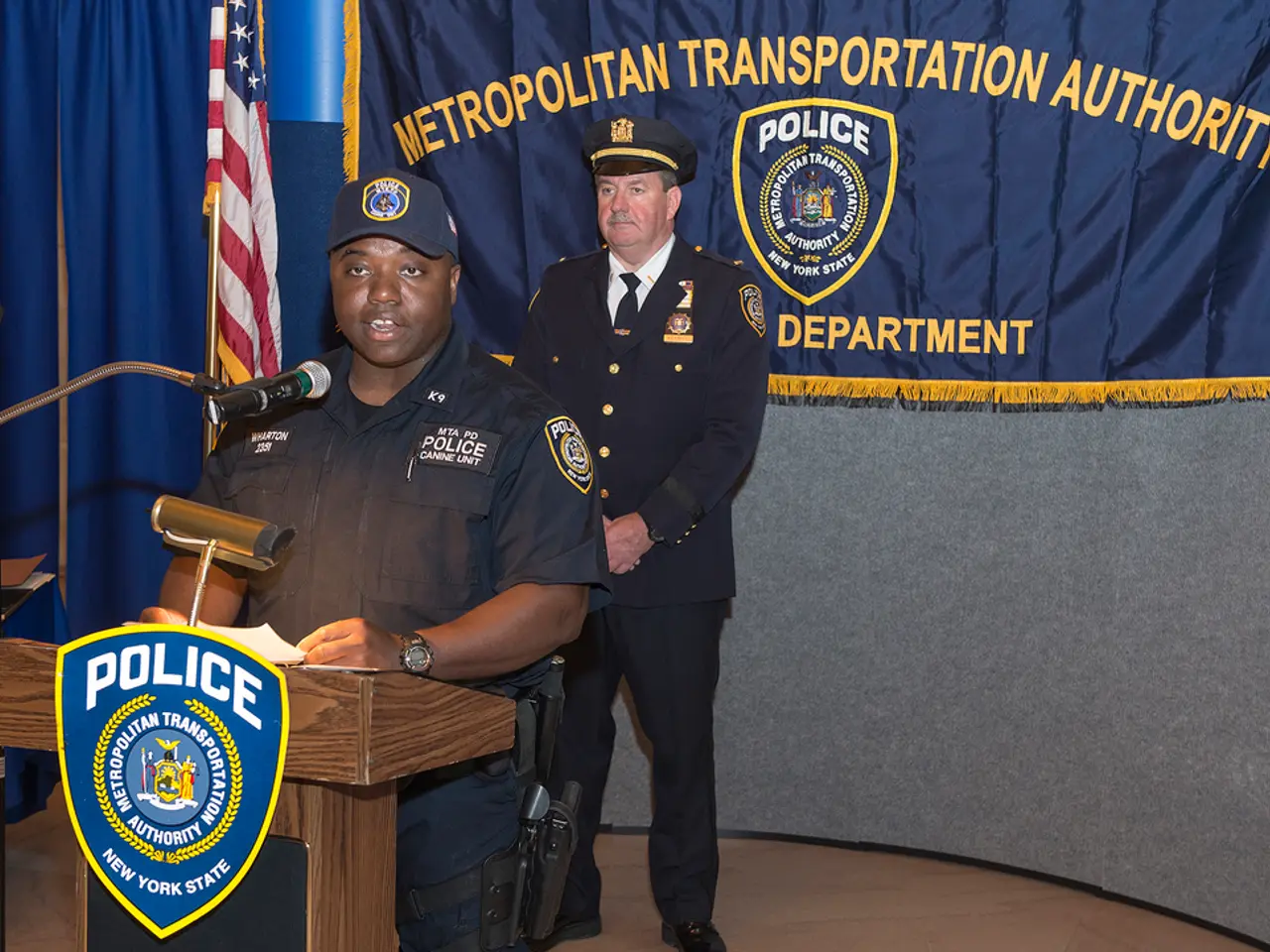National Tourism Ministers' Three-Day Gathering Commences in Dharamshala
In the picturesque town of Dharamshala, Himachal Pradesh, the National Conference of State Tourism Ministers was held from June 30 to July 1, 2025. The conference, which was actually the Commonwealth Parliamentary Association (CPA) Annual Conference – India Zone II, focused on discussing tourism development and good governance.
The conference theme was "Good Governance in the Digital Era: Managing Resources, Defending Democracy, and Embracing Innovation." Key discussion topics included the role of legislatures in managing state resources, provisions regarding disqualification on grounds of defection under constitutional articles, and the use of Artificial Intelligence (AI) in legislative processes.
The event featured plenary sessions, discussions on legislative and constitutional matters, and sharing best practices in governance to strengthen democratic institutions. A special spiritual interaction with His Holiness the Dalai Lama was part of the program, adding reflection and peace to the conference.
The conference emphasized digital governance innovation and managing resources for state development. It fostered dialogue on defending democracy and maintaining legislative integrity, including handling of anti-defection laws. The use of AI in legislatures was highlighted as a future-forward tool to improve governance.
The gathering served as a platform for sharing experiences and strengthening democratic practices among legislative members from eight states including Himachal Pradesh, Punjab, Haryana, Delhi, Jammu and Kashmir, Telangana, Karnataka, and Uttar Pradesh. High-profile attendees included Lok Sabha Speaker Om Birla, Himachal Pradesh Chief Minister Sukhvinder Singh Sukhu, Rajya Sabha Deputy Chairman Harivansh Narayan Singh, and Himachal Assembly Speaker Kuldeep Singh Pathania.
The conference also showcased Himachal Pradesh's cultural heritage and hospitality, with an emphasis on local cuisine and protocol.
In the realm of tourism, the conference aimed to create a direct dialogue with states on schemes, policies, and steps for overall tourism improvement. The Union Minister of Tourism, Culture, and DONER, G Kishan Reddy, encouraged the Prime Minister's vision of involving Indian diaspora and NRIs in promoting tourism.
The Ministry of Tourism has undertaken various initiatives and has a four-fold development strategy focusing on connectivity, infrastructure, branding, and promotion, and showcasing culture and heritage. The infrastructure development at these destinations focuses on cleanliness, security, universal accessibility, service delivery, skill development, and livelihood of local communities.
The upcoming 25 years being the Amrit Kaal, the aim of the Conference is to begin a common conversation between the State and Central Governments for setting the vision for tourism in India in the year 2047. The National Tourism Policy will be brought out before the Budget session.
The PRASHAD Scheme, aimed at strengthening tourist facilities around spiritual locations, has had 39 projects sanctioned in 24 states. The Swadesh Darshan Scheme 2.0 aims to develop sustainable and responsible tourist destinations, following a tourist & destination-centric approach. Various tourist circuits are being promoted, including a new 'Ambedkar Circuit' and the Himalayan Circuit.
The conference aims to build a common vision for tourism and its growth as India moves towards India @ 2047. Financial assistance to the tourism sector, which has been affected by Covid-19, continues to be extended until March 2023. The number of airports in India has increased from 74 in 2014 to 140, and it is further proposed to increase to 220 by 2025. The ministry has sanctioned Rs 7000 crores for development of tourism infrastructure throughout the country, with 76 projects under the Swadesh Darshan Scheme in 30 states and UTs.
The National Conference of State Tourism Ministers was indeed a significant platform for parliamentarians to discuss governance challenges and innovations, including implications for sectors like tourism, especially considering the venue and local government involvement. The conference also served as a platform for sharing best practices, successful projects, and tourism product opportunities.
- The National Conference of State Tourism Ministers, held in Dharamshala, Himachal Pradesh, not only discussed tourism development but also delved into the realm of politics, focusing on the role of legislatures in managing state resources and provisions regarding disqualification on grounds of defection under constitutional articles.
- In addition to showcasing Himachal Pradesh's cultural heritage and hospitality, the conference also highlighted the use of Artificial Intelligence (AI) in legislative processes as a future-forward tool to improve governance, bridging the gap between politics and technological innovation.








